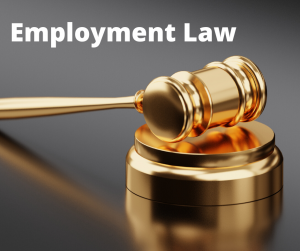 How concerned should small businesses be about wrongful discharge lawsuits from plaintiffs terminated after alleging publicly that their employer did not follow health and safety guidelines to combat the spread of COVID-19?
How concerned should small businesses be about wrongful discharge lawsuits from plaintiffs terminated after alleging publicly that their employer did not follow health and safety guidelines to combat the spread of COVID-19?
The first clues may emerge from one of the first employment lawsuits related to the pandemic, filed in late May in Dallas County, Iowa. The plaintiff is a former county jail employee who called a hotline set up by the Department of Corrections after a co-worker who tested positive for COVID-19 was allowed to resume work due to being asymptomatic.
The sheriff’s office ultimately decided that the infected employee would not return, but the sheriff allegedly grew furious after hearing of the hotline call, according to the lawsuit, which says he viewed the plaintiff as disloyal and disrespectful of the chain of command.
The sheriff said the plaintiff’s firing was due to a violation of the department’s “no call-no show policy,” according to the lawsuit, which alleges that this both violated the state’s public sector whistleblower law, and was a wrongful discharge in violation of public policy.
While the whistleblower statute only governs government employees, and applies narrowly, the latter charge could be greatly impactful on employment litigation stemming from COVID-19, depending on how the court rules.
To prevail on a violation of public policy claim, the plaintiff must prove he was fired for engaging in an activity that “public policy” somehow protects. Intended to be a narrow exception to at-will employment, this category of claim, first recognized by the Iowa Supreme Court in 1988, has grown in a number of directions.
To date, these directions have included the employee engaging in an activity that’s either guaranteed by law, such as filing a workers’ compensation claim; undertaking a legal requirement, such as jury duty; or carrying out a legally required professional obligation, like a teacher who reports child abuse.
None of these directions appear to apply to the case at hand involving the call to the hotline. The plaintiff does not allege the jail broke any rules, regulations or guidelines regarding COVID mitigation efforts, that the workplace was unsafe, or that the plaintiff or someone in his household would be at particular risk of severe illness from COVID-19.
Instead, the plaintiff simply feared that allowing the infected co-worker to return to work, despite being asymptomatic, and this fear might well have been justified, and the jail might well have been imprudent to even consider allowing the infected person to return.
But the question is whether the “public policy” exception to at-will employment covers a complaint lodged with a hotline over such health-related concerns. And if so, what other complaints or concerns might fall under this newly created exception?
Eventually, it seems likely that the Iowa Supreme Court will need to decide these questions. And businesses in Illinois and elsewhere might want to stay abreast of this case—and the others like it, claiming a wrongful employment action related to COVID, that are sure to follow.
 Chicago Business Attorney Blog
Chicago Business Attorney Blog

